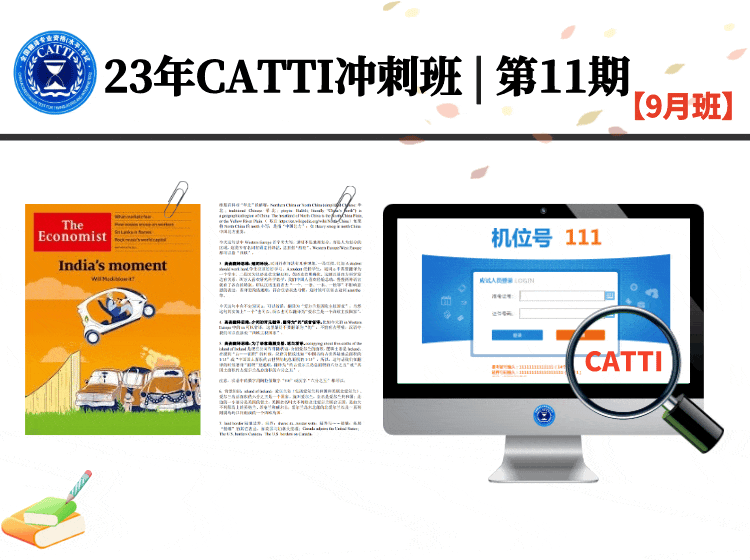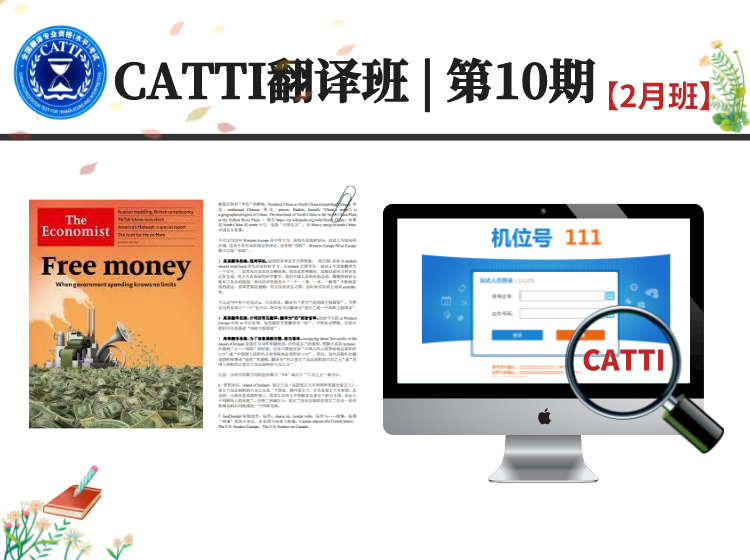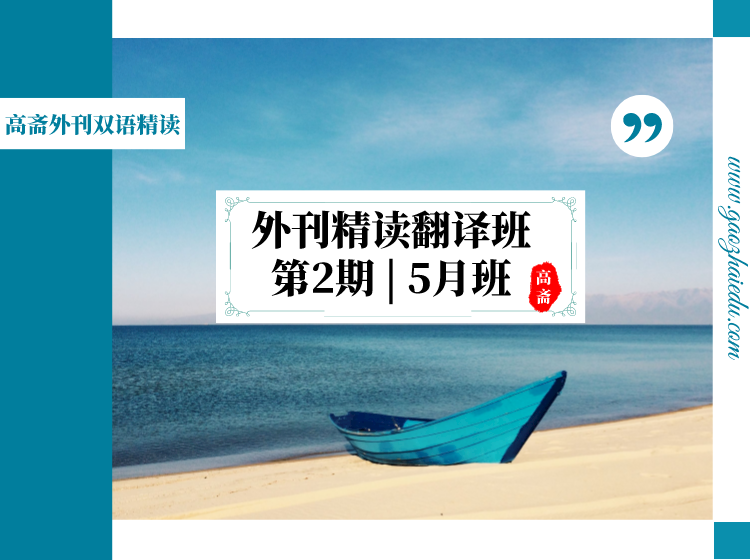第18届韩素音青年翻译比赛汉译英原文及参考译文
原文
读书苦乐
杨绛
读书钻研学问,当然得下苦功夫。为应考试、为写论文、为求学位,大概都得苦读。陶渊明好读书。如果他生于当今之世,要去考大学,或考研究院,或考什么“托福儿”,难免会有些困难吧?我只愁他政治经济学不能及格呢,这还不是因为他“不求甚解”。
我曾挨过几下“棍子”,说我读书“追求精神享受”。我当时只好低头认罪。我也承认自己确实不是苦读。不过“乐在其中”并不等于追求享受。这话可为知者言,不足为外人道也。
我觉得读书好比串门儿——“隐身”的串门儿。要参见钦佩的老师或拜谒有名的学者,不必事前打招呼求见,也不怕搅扰主人。翻开书面就闯进大门,翻过几页就升堂入室;而且可以经常去,时刻去,如果不得要领,还可以不辞而别,或者另找高明,和他对质。不问我们要拜见的主人住在国内国外,不问他属于现代古代,不问他什么专业,不问他讲正经大道理或聊天说笑,都可以挨近前去听个足够。我们可以恭恭敬敬旁听孔门弟子追述夫子遗言,也不妨淘气地笑问“言必称‘亦曰仁义而已矣’的孟夫子”,他如果生在我们同一个时代,会不会是一位马列主义老先生呀?我们可以在苏格拉底临刑前守在他身边,听他和一位朋友谈话;也可以对斯多葛派伊匹克悌忒斯的《金玉良言》思考怀疑。我们可以倾听前朝列代的遗闻逸事,也可以领教当代最奥妙的创新理论或有意惊人的故作高论。反正话不投机或言不入耳,不妨抽身退场,甚至砰一下推上大门——就是说,拍地合上书面——谁也不会嗔怪。这是书以外的世界里难得的自由!
壶公悬挂的一把壶里,别有天地日月。每一本书——不论小说、戏剧、传记、游记、日记,以至散文诗词,都别有天地,别有日月星辰,而且还有生存其间的人物。我们很不必巴巴地赶赴某地,花钱买门票去看些仿造的赝品或“栩栩如生”的替身,只要翻开一页书,走人真境,遇见真人,就可以亲亲切切地观赏一番。
尽管古人把书说成“浩如烟海”,书的世界却真正的“天涯若比邻”,这话绝不是唯心的比拟。世界再大也没有阻隔。佛说“三千大千世界”,可算大极了。书的境地呢,“现在界”还加上“过去界”,也带上“未来界”,实在是包罗万象,贯穿三界。而我们却可以足不出户,在这里随意阅历,随时拜师求教。谁说读书人目光短浅,不通人情,不关心世事呢!这里可得到丰富的经历,可认识各时各地、多种多样的人。经常在书里“串门儿”,至少也可以脱去几分愚昧,多长几个心眼儿吧?
可惜我们“串门”时“隐”而犹存“身”,毕竟只是凡胎俗骨。我们没有如来佛的慧眼,把人世间几千年积累的智慧一览无余,只好时刻记住庄子“生也有涯而知也无涯”的名言。我们只是朝生暮死的虫豸(还不是孙大圣毫毛变成的虫儿),钻入书中世界,这边爬爬,那边停停,有时遇到心仪的人,听到惬意的话,或者心上悬挂的问题偶有所得,就好比开了心窍,乐以忘言。这“乐”和“追求享受”该不是一回事吧?
译文
The Bitter-Sweetness of Reading Yang Jiang
Reading and studying regularly calls for a painstaking effort, whether it is meant for passing an exam, writing a thesis or pursuing an academic degree. T'ao Yuanming, a famous scholar in Jin Dynasty, who doted on reading, might probably feel baffled if he were living today and had to take exams for getting into universities or graduate programs or to score well in such tests as the TOEFL. I'm afraid he might fail the exam in Political Economics, as the result of his motto "staying content with superficial reading".
I was "cudgeled" for a couple of times, being reprimanded for reading "to seek spiritual indulgence." At the time, I had to bow down my head and confess my sin, and I have to admit as well that I've never made any painstaking effort in reality. Nevertheless, "enjoying reading" doesn't mean seeking indulgence, whose truth can only be shared with like-minded people, but goes beyond those without similar experiences
I would compare reading to visiting friends — in the spiritual rather than physical sense. Visiting a well-respected teacher or paying homage to a renowned scholar doesn't necessarily require appointment in advance and we won't feel as if we were disturbing him. Opening the book is like getting into the door uninvited; and turning a few pages, we may find ourselves in his study. Besides, we can go visit him as frequently as we want and at any time we wish. If we fail to get the pith of his argument, we can just leave without saying "good-bye" or turn to someone else for help, and come back to challenge him. We can get close to the host and listen to every word he has to say, no matter where he resides, at home or abroad, what a person he was or is, a contemporary or a man of the past, whatever field he specializes in, or whether he is talking about a serious subject of importance or simply chatting plus cracking jokes. We can sit in, in due reverence, and listen as Confucius' disciples recount their master's legacy of teachings, or playfully ask Mencius, who likes to prattle about nothing but kindness and justice, whether or not he would become a pious Marxist preacher, should he live in our time. We can stay by the side of Socrates at his execution and listen to him talking to his friend, or harbor doubt as we ponder the truth of Discourse by Epictetus, a Stoic Philosopher. We can indulge ourselves in the anecdotes and amazing tales of the past, and appreciate the profound nouveau theories of our own age or hear sensational arguments meant to shock the world. In a nutshell, we can bang the door shut —closing the book that is —the minute we find anything disagreeable or distasteful, and leave forthwith. No one will blame us. This is the kind of freedom we can hardly expect other than from the books.
For Hu Gong (or Master Gourd), a master herbalist in ancient China, a magical gourd of his contains the entire world. Likewise, every book, be it a novel, a play, a biography, or a book of traveling notes, of journals, and of even essays or of poems, contains a world of its own, with its own sun, moon, and stars and its own live characters between heaven and earth. There is really no need trotting all the way to places and paying admission fees, merely to view imitations or vivid "substitutes", when we can simply open a book and find ourselves in real situations and meet real characters for a close contact.
Despite the ancient saying about books being like a vast ocean, the distant world of books could be actually deemed as close as a next-door neighbour, which is not merely an idealistic metaphorical assertion. For in the world of books there are no longer any barriers. The Buddhist notion of "One Buddha- world" is extremely enormous. But what about the extremities of the world of books? It consists of "the present realm", "the past realm", and "the future realm", encompassing everything in each of the three great realms, across whose borders we can go back and forth with great ease. We can read and experience all we care to read and experience, and learn from masters any time we want, without venturing outdoors at all. Who says that book-lovers are near-sighted, inflexible and indifferent to worldly affairs! In the world of books, we can enrich our experience and get to know all kinds of people from different times and places. Those who visit the world of books frequently can at least rid themselves of some ignorance and gain a certain degree of wisdom.
It is a pity that our physical body, invisible as we visit the world of books, is after all confined to this mundane world. Without the insight of Buddha, who takes in all the human wisdom accumulated over thousands of years at one glance, we have to comfort ourselves by what Zhuang Zi has said: "Human life-span is finite whereas knowledge is infinite." We are but insects with a fleeting lifetime (not even the insects the Monkey King turned into with his hairs), crawling our way into the world of books, pausing hither and thither, becoming speechless with exultation when we accidentally bump into a much-admired person or hear a few soothing words or occasionally find an answer to a pending question. I wonder if this sense of "joy" can be called "seeking indulgence in pleasure".







